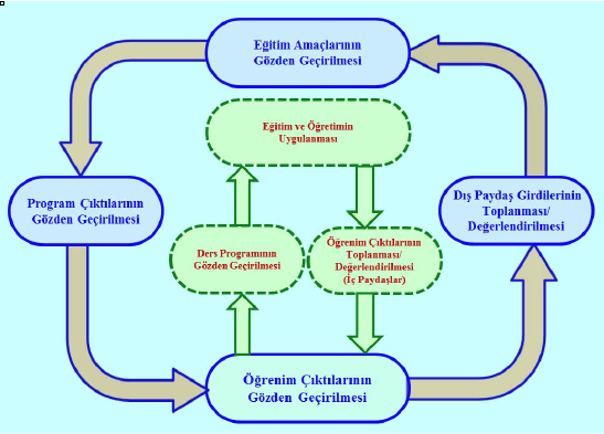Our department has been accredited by MÜDEK.
The Materials Science and Engineering program at Eskişehir Technical University was first accredited by MÜDEK (a member of EUR-ACE and the International Engineering Alliance) on September 30, 2009. Subsequently, the program was reaccredited on September 30, 2014, and September 30, 2019, ensuring continuous accreditation until September 30, 2025.
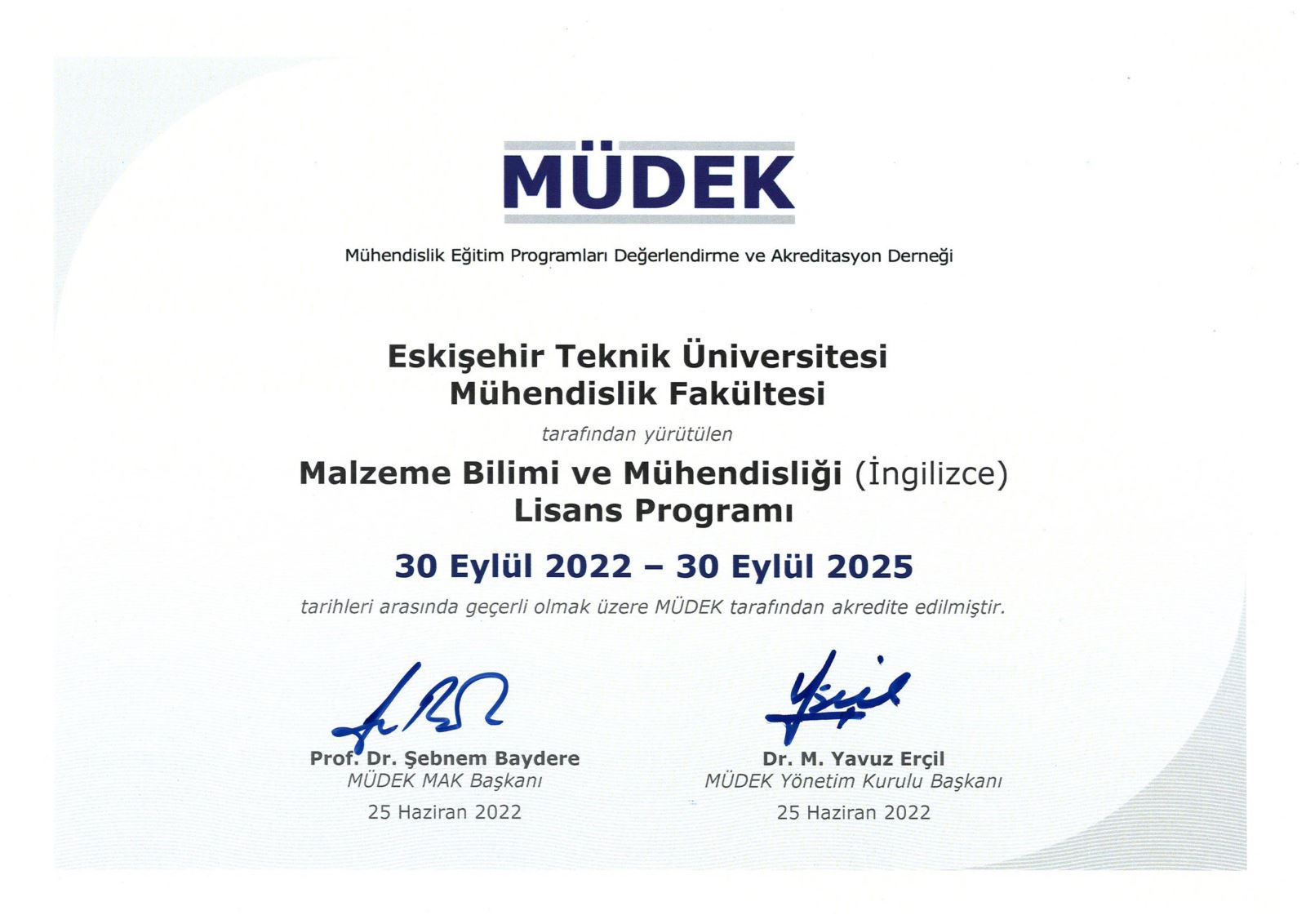
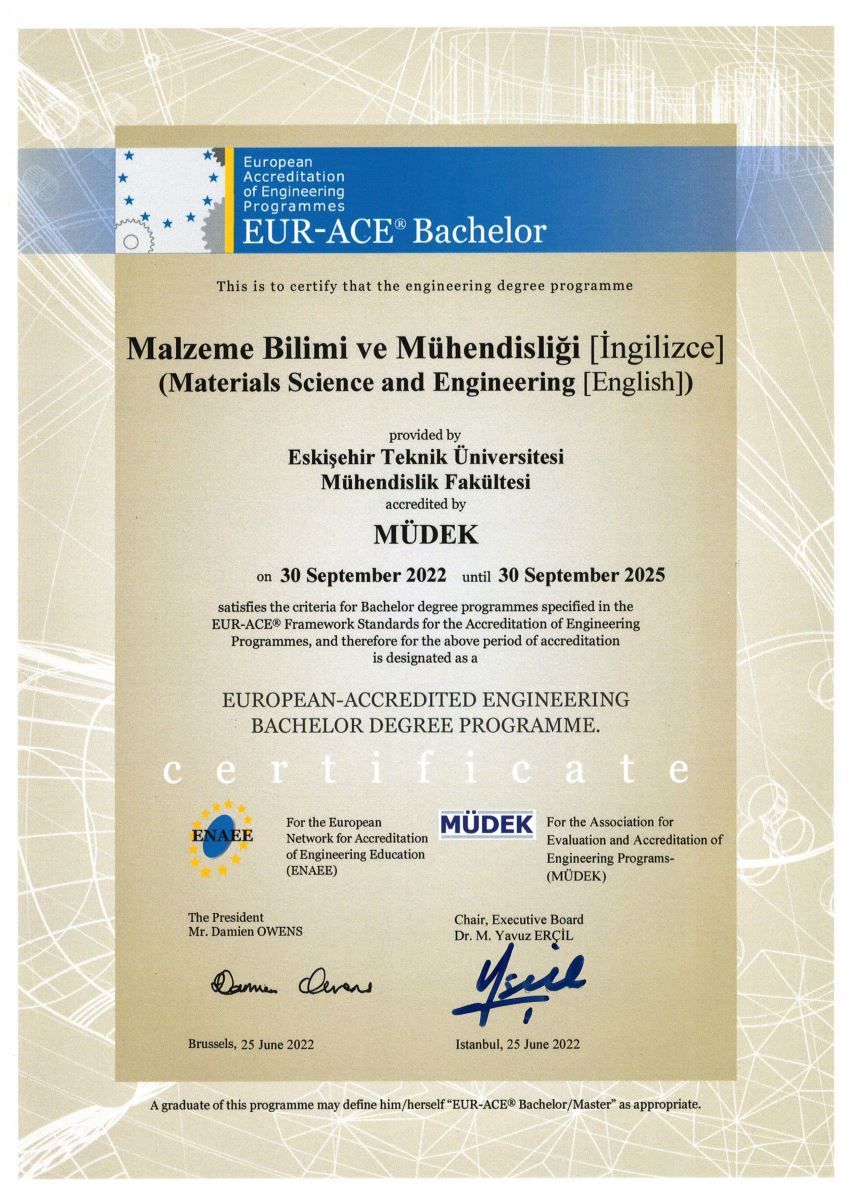
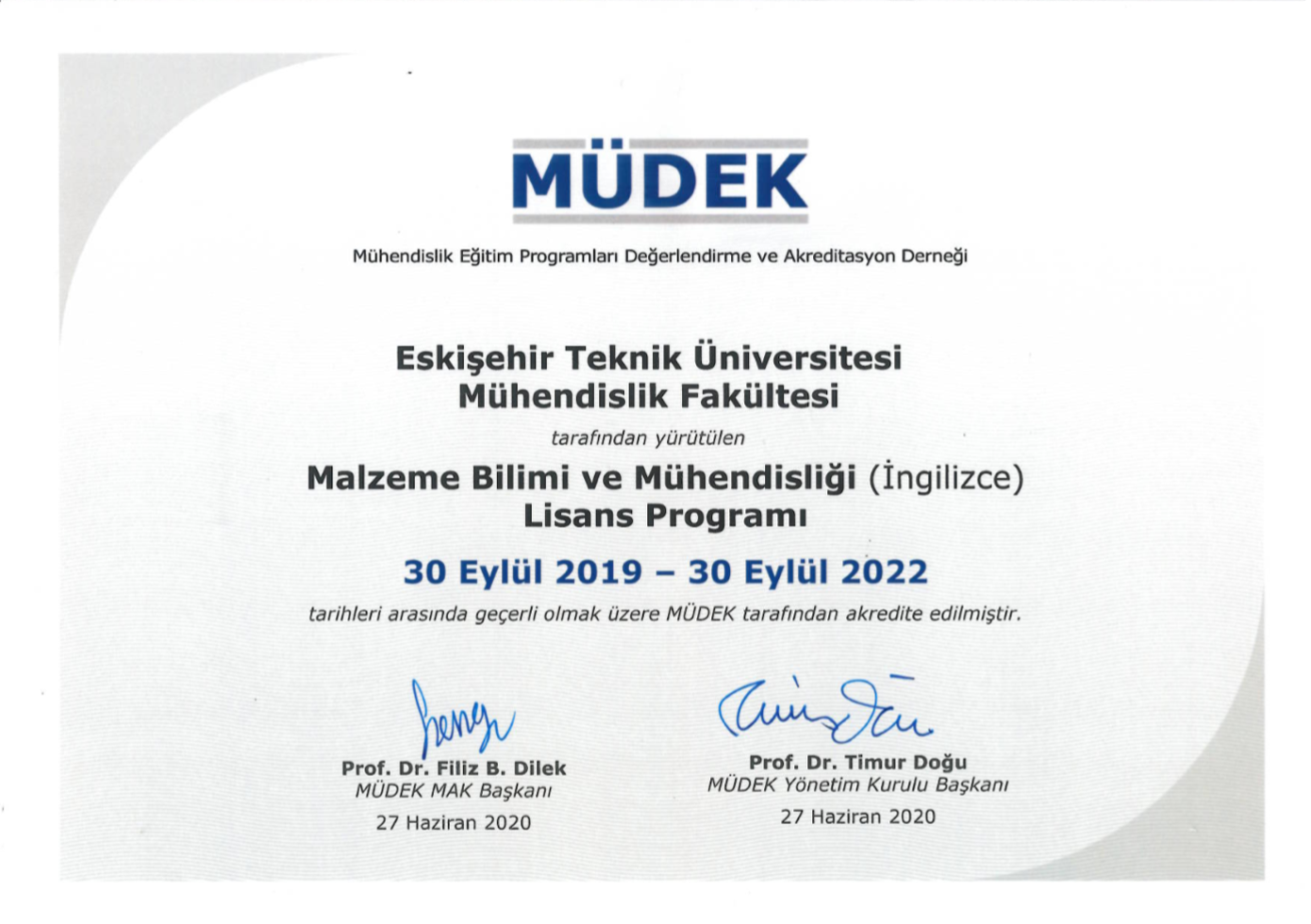
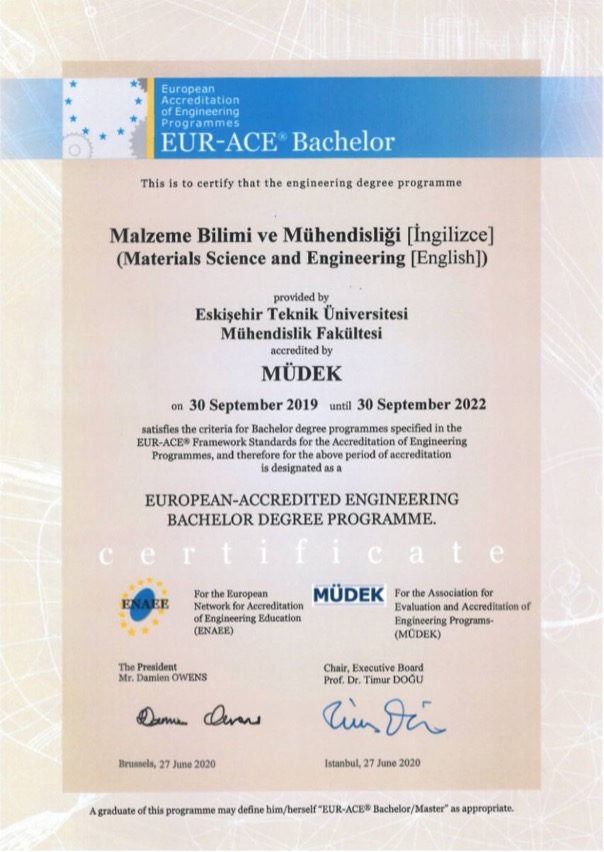
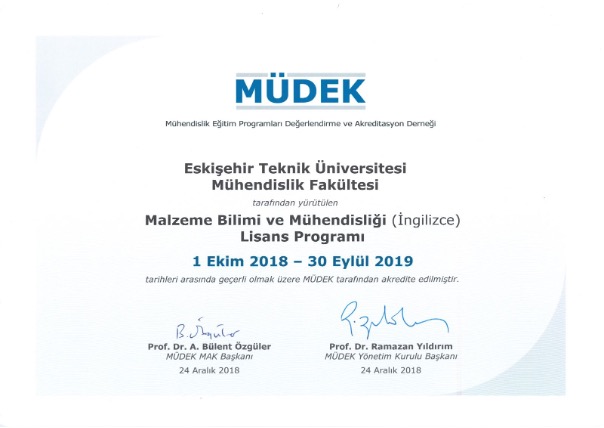
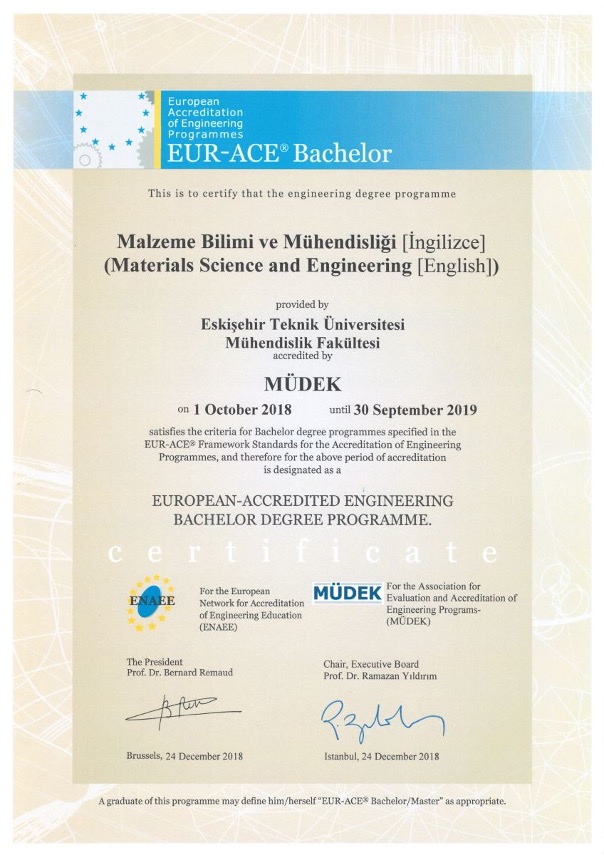
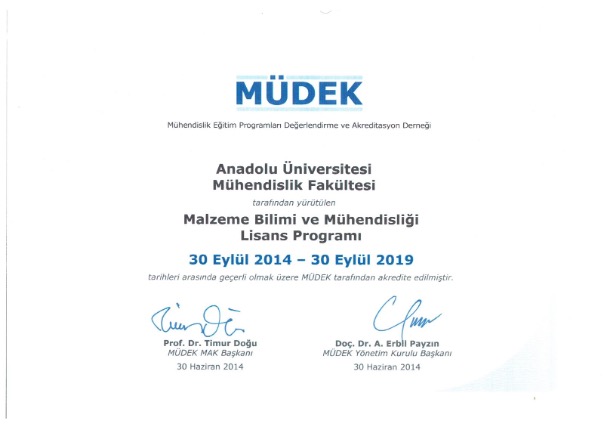
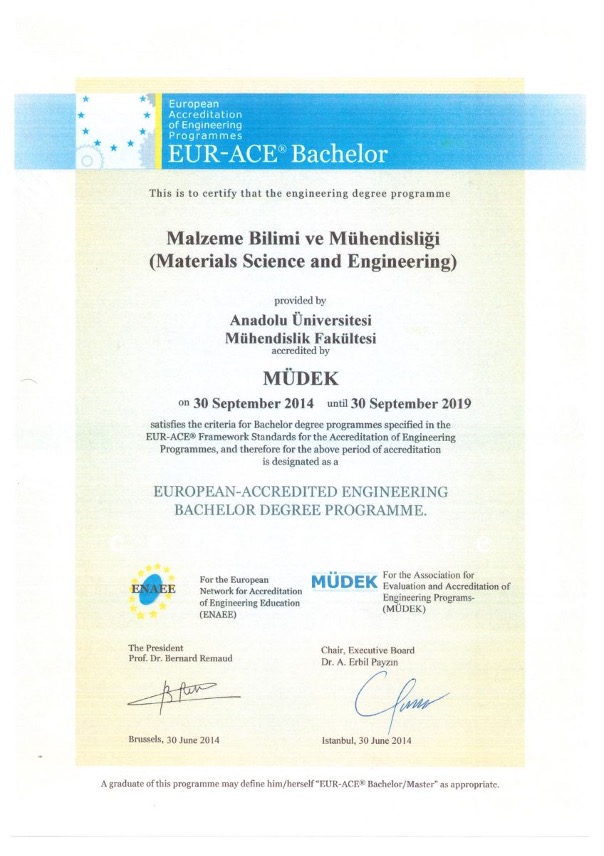
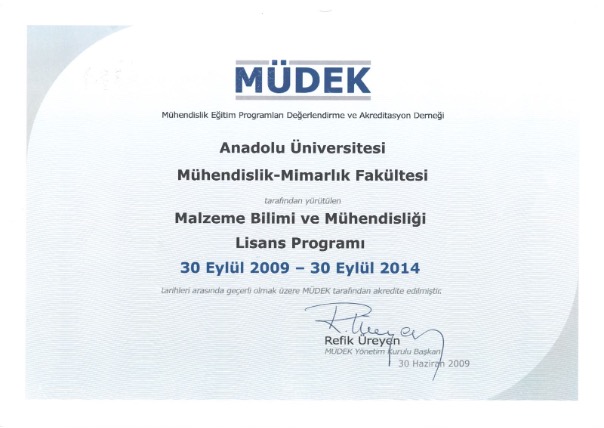
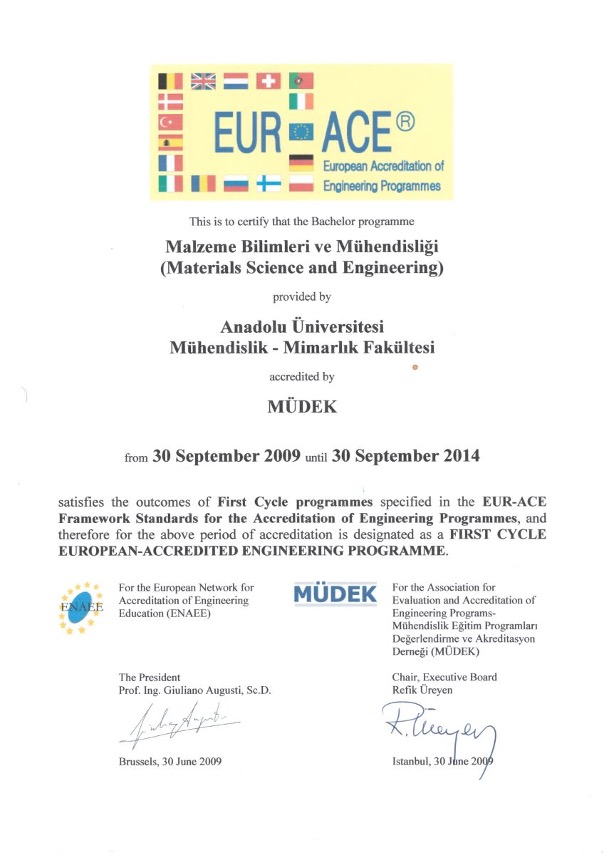
|
Mission
|
To become one of the top three Materials Science and Engineering Departments in Turkey and to be well-recognized internationally through its graduates, projects, and societal contributions. |
|
Vision
|
To generate contemporary and universal knowledge and technology, make this knowledge accessible to society, and to educate pioneering engineers who uphold our core values and lead in their professions. |
| External Stakeholders | Internal Stakeholders |
|---|---|
| Employers | Faculty Members |
| Alumni (both recent and former) | Research Assistants |
| Public Institutions (such as YÖK, TÜBİTAK, ROKETSAN, Chamber of Metallurgical Engineers) | Students |
| Industry | Other departments within the Faculty of Engineering |
| Other Universities (such as METU, ITU, ESOGU, Alaaddin Keykubat University) | Other Faculties within the Institution |
| Non-governental Organizations (NGOs) (such as TSD, MÜDEK) | The Rectorate |
| The Graduate School of Natural Applied Sciences |
| No | Program Educational Objectives | Performance Metrics | Target Figures |
|---|---|---|---|
| 1 | Graduates securing employment in professions related to their field. | Number of graduates employed in jobs related to their field. | At least 80% of graduates. |
| 2 | Graduates working as full-time researchers in national or international R&D-focused institutions. | Number of graduates participating as leaders or researchers in R&D projects. | At least 50% of employed graduates. |
| 3 | Graduates fostering an R&D culture in their firms and leading efforts to strengthen University-Industry Collaboration. |
- Number of TEYDEB and TÜBİTAK (e.g., 1001, 1007) projects their firms are involved in. |
At least 25% of employed graduates. |
| 4 | Graduates advancing to decision-making positions in their firms by demonstrating their capabilities. | Number of graduates promoted to decision-making positions in their firms. | At least 10% of graduates. |
